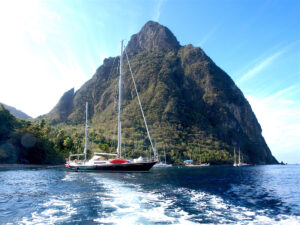We’ve been hanging out and exploring the island of Tutuila in American Samoa for a month. The capital is Pago Pago (pronounced “pango pango”), but we’ve not spent much of our time there, but in the larger, surrounding communities. It’s rained almost constantly, we’ve hardly seen the sun, the wind has blown relentlessly, and the harbor water is too dirty to swim in. We have been absolutely charmed by American Samoa.
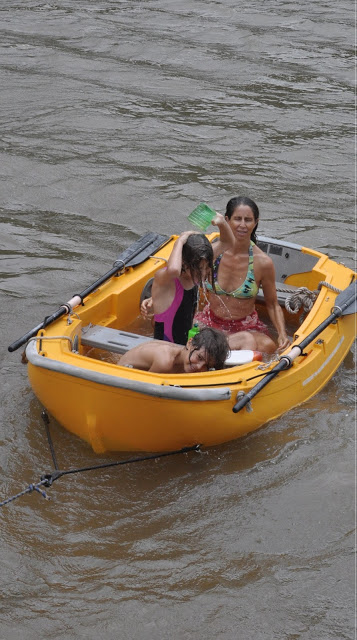
I’m not being facetious. The steep sides of the remnants of a volcano crater that form the protected harbor in which we’re moored and the serendipitous encounters we’ve had with the American Samoans, have made it clear how misinformed we were prior to arriving. Based on all we heard, we anticipated a cesspool of Americana in the South Pacific. This place is beautiful and the people are warm and utterly foreign to us.
“Excuse me…”
I got up from the bus stop bench and approached the car window.
“I just saw you guys sitting here twenty minutes ago, you still haven’t caught a bus. Where are you going?”
“Pago.”
“Ahh,” she nodded. “Okay, you’re gonna have trouble catching a bus at this time, get in, all of you.” She waved and motioned to Windy and the girls behind me. “I’ll take you.”
“You sure? We could pay for your gas, thank you very much.”
She opened the back and I began loading some of our bags. It was getting dark and we’d pushed the bus schedule too close and lost. We were gonna do our time here on the bench to be absolutely certain though, before we paid $20 for a 20-minute cab ride back to Pago Pago.
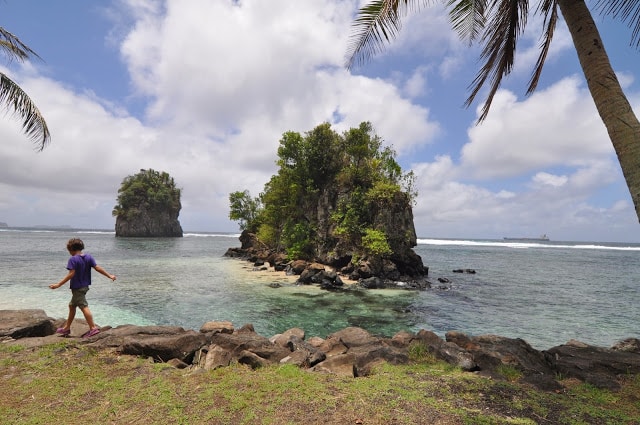
On the way, she tried repeatedly to get ahold of her sister on the phone, to let her know she’d be home late, going 40 minutes out of her way to help some random palogis (foreigner, pronounced “palongi”). En route she answered all of our questions about Samoan culture, helping us make sense of so much we’d observed and didn’t understand. Despite the name of this place and that everyone speaks American English and the two McDonalds restaurants and U.S. post office, it had become obvious to us that this clearly wasn’t an extension of the U.S., not even close. The men here wear skirts (lava lavas), Samoan music and ‘80s ballads pound from the speakers in the colorful homemade buses, the teenagers are disarmingly friendly, and nearly every home features a grave next to the front door.
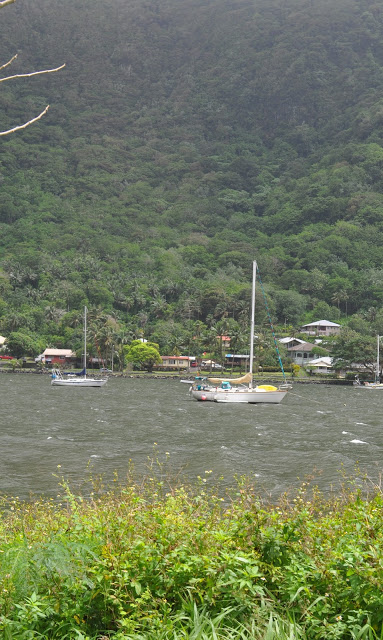
When we arrived in Pago where we’d left the dinghy, we thanked our new friend profusely and I insisted she take $5 for gas money and the girls turned over a small bag of homemade cookies we’d packaged up to give someone else who’d been kind to us, but whom we’d not run across.
Then, without missing a beat, she reciprocated—as if she’d not already—by giving Windy the lava lava she’d been wearing that Windy had casually admired. Just another piece of the Pacific Island culture we learned, that people are very quick to gift when they’ve been gifted and there is a tendency to give those things that have been admired by others.
In short, we got a ride from a stranger who went significantly out of her way, and then she drove off leaving us the clothes off her back.
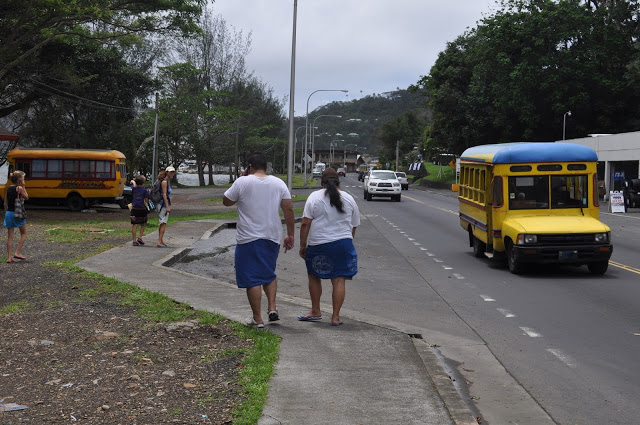
I could share three other such stories from American Samoa, of strangers extending warmth and kindness beyond what I’d ever expect. It’s been a treat—not simply to have been a beneficiary of this kindness, but to travel through places like this with my girls and to have them experience this kindness in a more natural way. For them this is normal, it’s largely what they’ve come to know over the past five years living as a traveling family. Because while I know the American Samoa culture (not distinct from the Samoan culture, from what we’ve learned, or from Pacific Island culture in general) is kind and open in a way we are not used to,* I also know that as travelers, we are often vulnerable to acts of kindness, because we are always the outsider, always on the street and looking out, asking outsider questions. For five years, my kids have been immersed in a world that is perhaps more kind than they could have known in a more conventional context. They expect kindness from strangers and they offer kindness without reservation. It’s shaping who they are. I can see it.
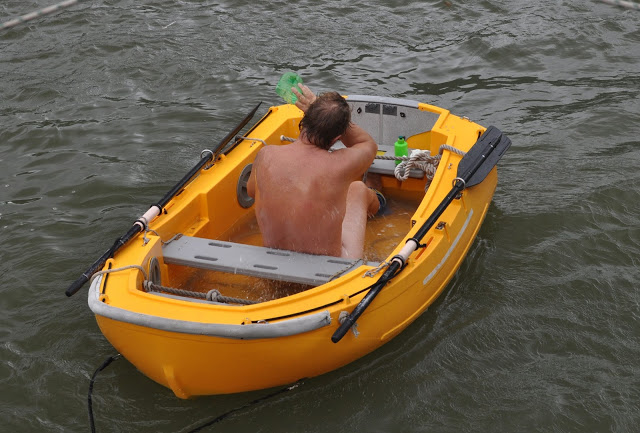
*I also know these cultures have serious problems, I don’t want to idealize them, they’re not all peaches and cream. But as travelers, those are not the aspects we are exposed to.
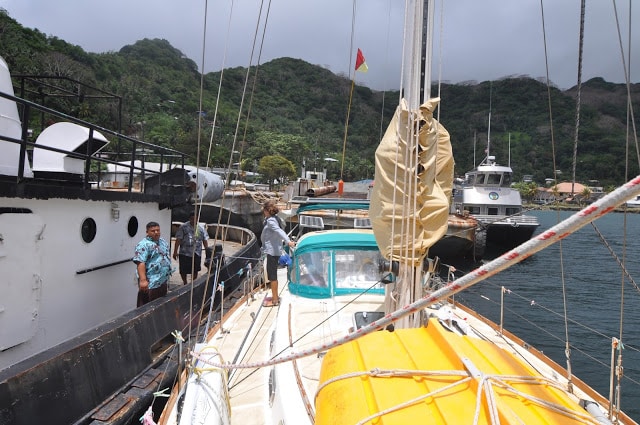
In our twenties, we traded our boat for a house and our freedom for careers. In our thirties, we lived the American dream. In our forties, we woke and traded our house for a boat and our careers for freedom. And here we are. Follow along with the Roberston’s onboard Del Viento on their blog at www.logofdelviento.blogspot.com.

